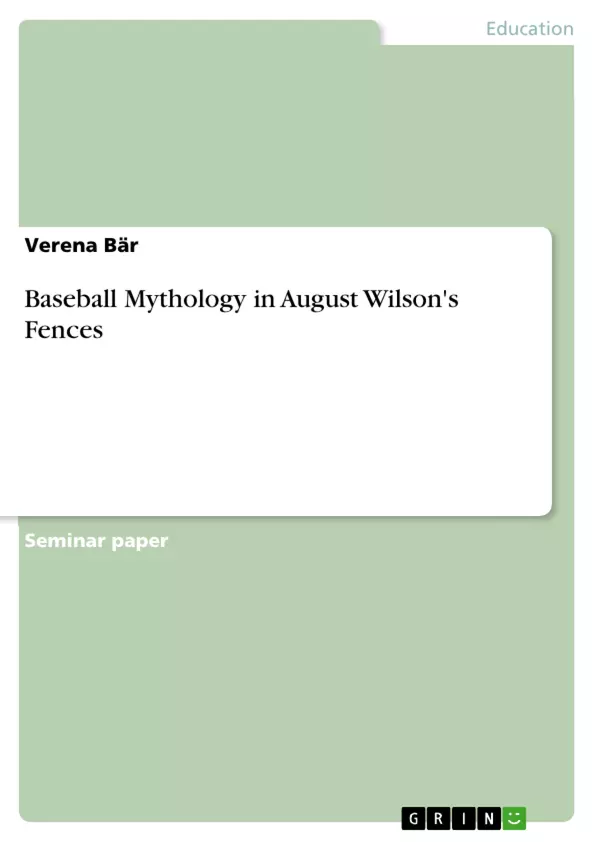Wilson said that he “started [his play] Fences with the image of a man standing in his yard with a baby in his arms” (qtd. in DeVries 25). This first picture developed into the Pulitzer Prize winning story of Troy Maxson, a fifty-three-year-old, black garbage collector in Pittsburgh. The play starts 1957 and ends 1965 with the death of Troy. In the play we get an insight into Troy’s life with his wife Rose, his sons Cory and Lyons, his brother Gabriel and his best friend Bono. Troy has to face a lot of challenges. First of all, he has to live in a racist society which denied him to live his dream of being a baseball player. Wang says that “the tragic dimension of the play is delineated by the conflict between characters’ tenacious pursuit of their dreams and an environment which works adversely to prevent them from realizing their dreams” (Wang 63). Furthermore, Troy has to work at a garbage department. His hard job gets him just enough money to nourish his family. Also, in his family he has a lot of problems to deal with, especially with his son Cory, who wants to become a professional football player, but also with his wife Rose. The reason for his problems with Rose is that Troy has an affair with another woman, Alberta, and impregnated her. So, the story of the life of Troy Maxson is a story about racism, friendship, segregation, family, love, shattered dreams, rejection and of course baseball.
- Quote paper
- Verena Bär (Author), 2011, Baseball Mythology in August Wilson's Fences, Munich, GRIN Verlag, https://www.grin.com/document/230143



